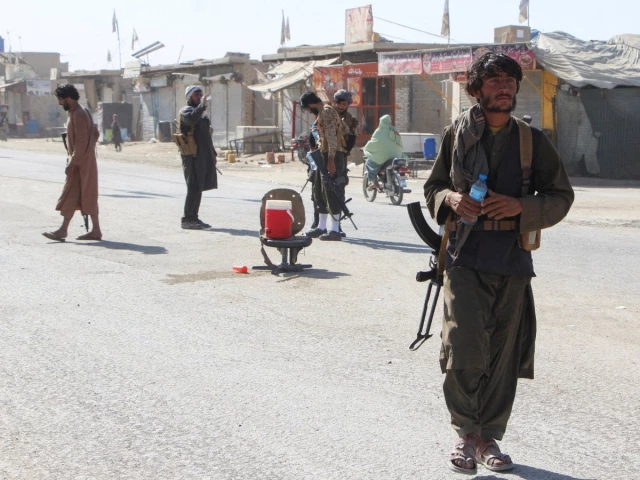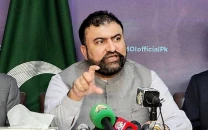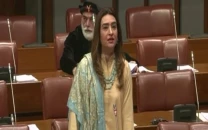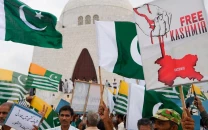Islamabad warns Afghan Taliban regime against their patronage of terrorists
Pakistan demands 'concrete, verifiable steps' from Kabul to eliminate cross-border terrorism during Istanbul talks

Pakistan has presented its final position to the Afghan Taliban regime during the second round of talks, firmly rejecting what it called their continued patronage of cross-border attacks and terrorism, terming such activities 'unacceptable', security sources said.
The ongoing negotiations — mediated by Turkiye and Qatar — are aimed at preventing a relapse into conflict following clashes between the border forces of the two countries earlier this month, the worst since the Taliban’s takeover of Kabul in 2021.
According to security sources, the Pakistani delegation made it clear during Sunday’s session that the Taliban’s support for militant groups operating from Afghan soil cannot be tolerated. Islamabad, they said, demanded 'concrete and verifiable steps' from Kabul to eliminate cross-border terrorism.
Read: 25 terrorists killed as forces foil Afghan border infiltration, five soldiers martyred: ISPR
“On the contrary, the arguments being presented by the Taliban are illogical and contrary to ground realities,” a security source said. “It appears that the Taliban are following someone else’s agenda, which is not in the interest of stability in Afghanistan, Pakistan, or the wider region.”
Officials added that further progress in the talks will depend on a positive and constructive attitude from the Afghan Taliban. Although a final outcome has yet to emerge, sources indicated that the Taliban remain reluctant to take action against Fitna al-Khwarij.
Pakistan’s delegation presented what officials described as substantial evidence of the presence of Fitna al Khwarij and Fitna al Hindustan on Afghan soil, including proof of shelter being provided to their leadership by the Afghan Taliban.
Officials further noted that the Taliban, as a non-state actor themselves, appear unable to grasp the implications of supporting other non-state groups at the expense of formal relations with Pakistan — a country that has long been a benefactor of the Afghan people.
Read More: Pakistan presents anti-terror plan to Afghanistan in Istanbul talks
“The Pakistani delegation joined the talks with full clarity, presenting core issues with solid evidence and refusing to let discussions deviate,” a security source said. “Pakistan maintained its stance that it will not engage with Fitna al-Khwarij and that the Afghan Taliban must withdraw their support to the leadership of all proxies.”
Officials also highlighted that the Taliban’s refusal to act on Pakistan’s demand — which has been endorsed by Turkiye, Qatar, Saudi Arabia, and the UAE — indicates that their current course is taking precedence over the consensus of international interlocutors. Sources suggested that this agenda may be influenced by India, which is reportedly seeking to re-establish its foothold in Afghanistan.
Security officials cautioned that a prolonged stalemate could compel Pakistan to take unilateral measures against the Tehreek-e-Taliban Pakistan (TTP), a move that could carry significant costs for both countries. “Afghanistan, too, would face higher consequences, for which the Taliban would be responsible,” one source warned.
Officials emphasised that it would be in the best interest of the people of both Afghanistan and Pakistan, as well as regional stability, that Taliban adopt a practical and cooperative approach and act decisively against proxy groups operating from Afghan territory.
Doha Talks
The Istanbul dialogues follow Pakistan and Afghanistan agreement on an immediate ceasefire during Doha talks, after a week of intense border clashes — the worst since the Taliban took power in Kabul in 2021.
The ceasefire 'has been finalised', Pakistan's Defence Minister Khawaja Asif posted on X on last Sunday, saying both sides would meet again on October 25 in Istanbul to discuss 'detailed matters'.
Pakistani delegation, led by Khawaja Asif, includes other senior officials. On the Afghan side, the talks were headed by Acting Defence Minister Mullah Yaqoob, accompanied by other representatives.
Also Read: US sees opportunity to cement bilateral strategic ties with Pakistan: Rubio
Pakistani officials raised the issue of cross-border terrorist attacks originating from Afghanistan, pointing in particular to groups such as the Gul Bahadur faction and the Tehreek-e-Taliban Pakistan (TTP). Islamabad maintains that these groups have been involved in multiple deadly incidents inside Pakistan in recent months.
Sources familiar with the talks said Pakistan presented a ‘single-point agenda’ focused on eliminating the terrorist networks. “Pakistan has made it clear that the Afghan government must root out terrorist organisations and their hideouts,” sources said.
Taliban spokesperson Zabihullah Mujahid said in a statement that the parties agreed on a complete and meaningful ceasefire.
Tensions escalated after unprovoked firing by Afghan Taliban regime
Tensions along Pakistan-Afghanistan border escalated on October 12, when clashes erupted after the Afghan Taliban regime opened unprovoked fire at multiple locations in Khyber-Pakhtunkhwa (K-P) and Balochistan, prompting a swift and forceful response from the Pakistan Army, which destroyed several Afghan posts and killed dozens of Afghan soldiers and militants.
The coordinated assault originated across several key sectors, including Angoor Adda, Bajaur, Kurram, Dir, Chitral in Khyber-Pakhtunkhwa, and Baramcha in Balochistan. The firing, security sources said, was aimed at facilitating the illegal entry of Khwarij — the state-designated term for the banned TTP — into Pakistani territory.
“The Pakistan Army responded immediately and decisively,” security sources said. “The counteroffensive effectively targeted and destroyed multiple Afghan posts on the border. Dozens of Afghan soldiers and Khwarij were killed in retaliatory fire”.





















COMMENTS (1)
Comments are moderated and generally will be posted if they are on-topic and not abusive.
For more information, please see our Comments FAQ